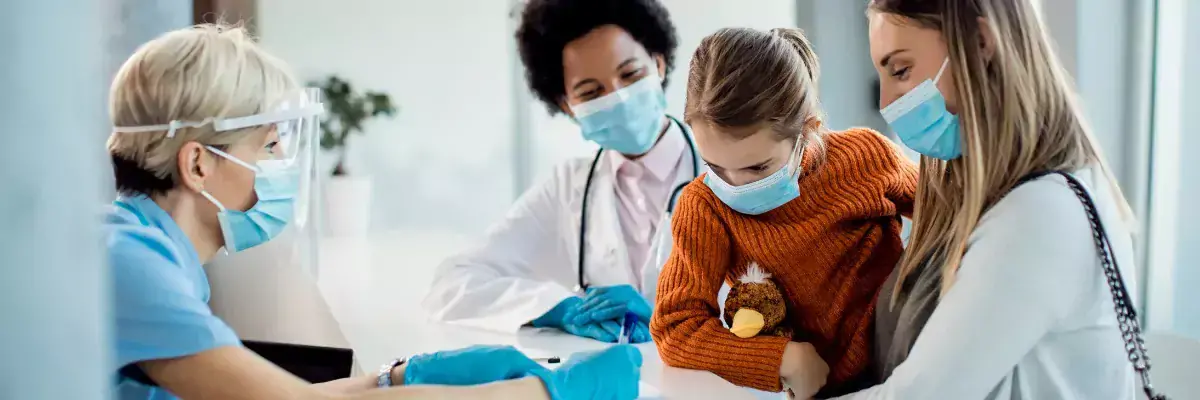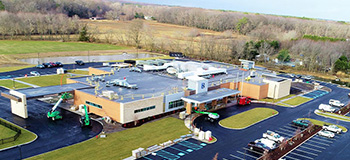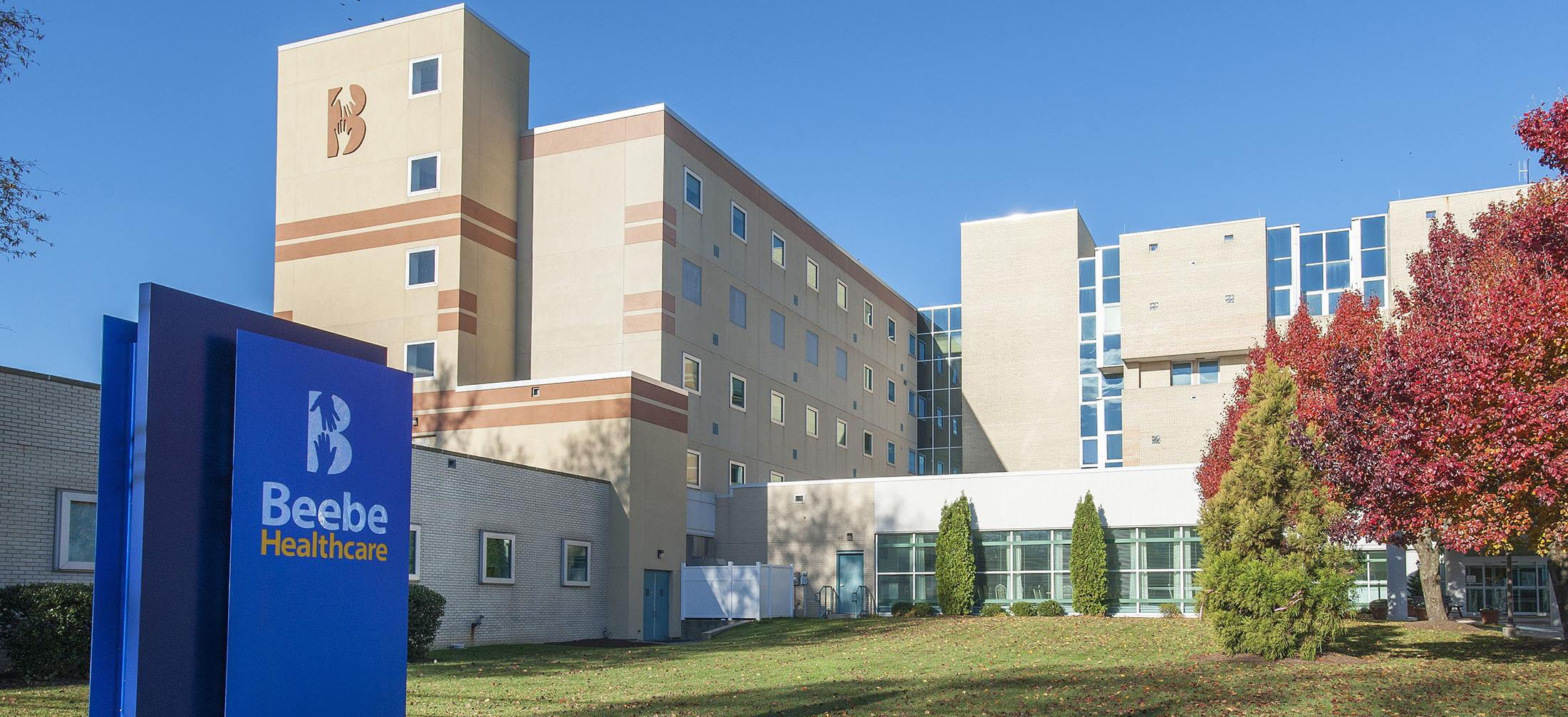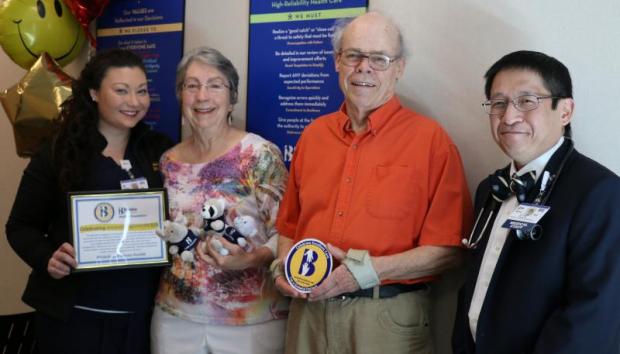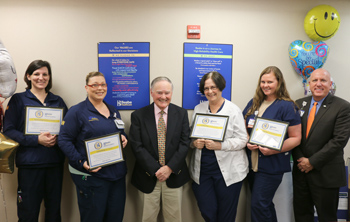Beebe Emergency Services: Here For You
Beebe Healthcare offers two Emergency Departments to serve you, which operate with the highest level of quality and safety.
Emergency Locations
Always call 911 in an emergency.
Beebe Healthcare's Lewes Campus Emergency Department is a Level III trauma center. Beebe is connected to a statewide Trauma Network that includes ground and air ambulance equipment, personnel, and paramedics, as well as medical centers, that can be accessed through the 911 telephone number.
Go to an Emergency Department if you have these symptoms:
- Abdominal/flank pain
- Allergic reactions
- Fever/febrile illness
- Flu symptoms
- GI upset (vomiting and/or diarrhea)
- Traumatic injuries
- Dehydration
- Fainting, dizziness or loss of consciousness
- Pneumonia/Cough/Shortness of breath
- Head and neck injuries
- Back pain
- Chest pain
Meet the Team
Commonly Asked Questions
An emergency situation, by definition, is unexpected. Patients occupying the Emergency Department's 37 beds during a typical 24-hour period didn't expect a sudden need for medical attention. More than 50,000 patients a year visit the Emergency Department in Lewes. Many patients have been involved in a recreational, workplace, or highway accident. Some experience potentially life-threatening symptoms. Others have conditions that demand attention before their regular physicians can give them an appointment. A number of patients simply have nowhere else to turn for medical care.
Determining who sees a doctor first is the job of the triage nurse. Triage is a sorting out according to the seriousness of your illness or injury. While waiting cannot be eliminated entirely, the Emergency Department (ED) staff hopes improved communication will make the stay in the waiting room more bearable. A staff member acts as a liaison to patients in the waiting room, bringing frequent updates on how cases are progressing and providing an estimate of how much longer individuals must wait.
The ED has also opened the treatment area so that a family member or friend can accompany a patient, which eases anxiety for everyone involved.
The Beebe Healthcare Family Life program includes the Domestic Violence Victim's Advocate program and the Sexual Assault Nurse Examiner program (S.A.N.E.). Members of these programs are Beebe employees who have added these responsibilities to their normal duties in order to help patients in time of need.
Domestic Violence Victim's Advocate program
The Domestic Violence Victim's Advocate program has staff members who are specially trained to provide information to victims of domestic violence. The realm of abuse goes beyond husband and wife and includes child abuse and elder abuse. Child abuse and neglect identification and prevention is a focus at Beebe.
Sexual Assault Nurse Examiner program (S.A.N.E.)
Beebe Healthcare has an established S.A.N.E. program (sexual assault nurse examiner) in the Emergency Department that provides coordinated, timely, comprehensive, and compassionate care to victims of sexual assault. The specially trained forensic nurses work with the Attorney General's office to prosecute offenders and those who falsely accuse. They work to prevent and intervene in child and elder abuse cases.
The S.A.N.E. mission is to improve the professional response to a patient who comes to Beebe with a complaint of being assaulted. A protocol for treatment is followed under the medical director and the International Association of Forensic Nurses (IAFN) standards of practice. Beebe S.A.N.E. nurses work in a collaborative effort with the Sexual Assault Network of Delaware. They assist law enforcement and provide factual testimony in court, and they work with advocates, such as Contact Delaware, to restore control and equilibrium to the individual.
S.A.N.E. nurses also educate the community about sexual abuse. They speak in schools, churches, and community centers and to professional organizations. S.A.N.E. nurses provide education to staff, resource materials, and prevention education. They also work with the Child Advocacy Center.
